We profile a few such leaders in our new Oklahoma’s Most Influential People spotlight, a two-part series running in July and August.
By Gretchen Eichenberg & Kimberly Burk
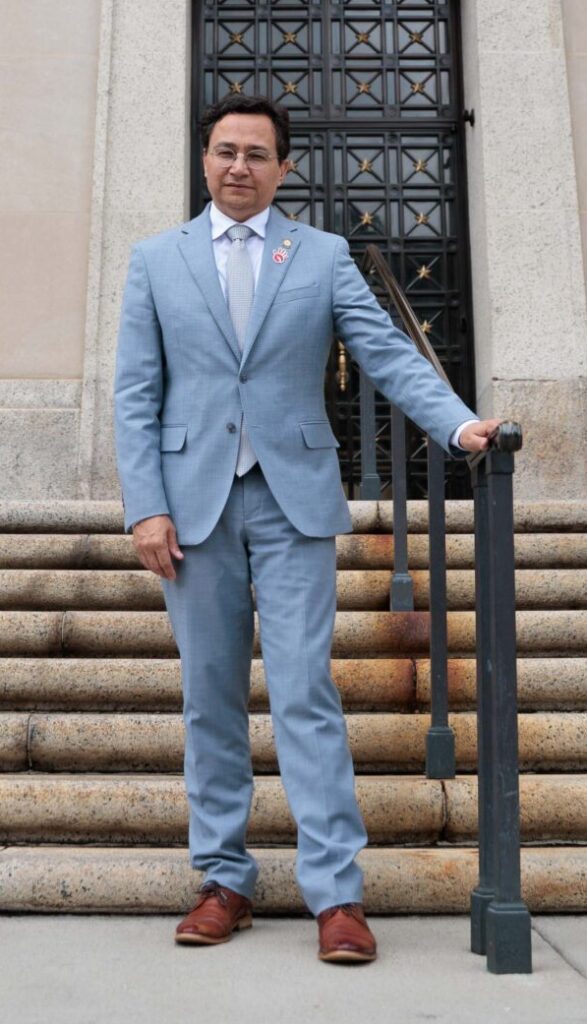
Chuck Hoskin Jr.
Principal Chief, Cherokee Nation
Representing the largest Native American tribe in the country with nearly half a million people, Chuck Hoskin Jr., Principal Chief of the Cherokee Nation, has his priorities and expectations in line with what’s good for his people – and for Oklahoma.
“What drives a lot of my philosophies is that we’ve got communities and citizens that need help, but they can also achieve great things,” Hoskin says. “What any influencer in the state should do, whether working in the civic, business, faith community or otherwise, is work for those who live in the shadows and don’t otherwise have a voice. Perhaps then we will see a restoration of what our ancestors created.”
Accessibility to government is a cornerstone of Hoskin’s leadership.
“We’ve been a constitutional democracy since the 1820s, which makes us one of the oldest democracies on the face of the planet that’s still in existence,” he says. “The challenge is that, as we grow, for the government to remain accessible and responsible and never stray from our foundational concepts, which are rooted in community.”
That can be achieved through transparency, he says.
“We’re a very transparent tribal government,” Hoskin says. “Not just the rudimentary conduct of open public meetings. We put a great deal of what we’re doing in electronic form that’s very accessible to the general public, including our citizens. We keep up a vigorous schedule, the deputy chief and I as well as our council members, of public events in which people can talk to us and ask us questions.”
A partnership with OU Health and Mercy Health System to ensure that world class cancer care can be found closer to home has been a priority for Hoskin and his team.
“The philosophy behind both of those investments – identical investments of $8 million each – is to streamline patient access to cancer care to either of those facilities,” he says.
As for the Cherokee Nation’s reported $3.1 billion annual economic impact, Hoskin only plans to scale it up.
“On the business side, we’re constantly looking for ways to diversify,” he says. “We’ll continue to look for new business sectors that provide long term growth.”
The Cherokee leader says he is proud to have a governmental structure that supports future growth and a committed leadership team by his side.
“All of that coincides at a moment in the history of the Cherokee Nation,” he says, “in which we’re able to do, I think, a great deal of good.”
– GE
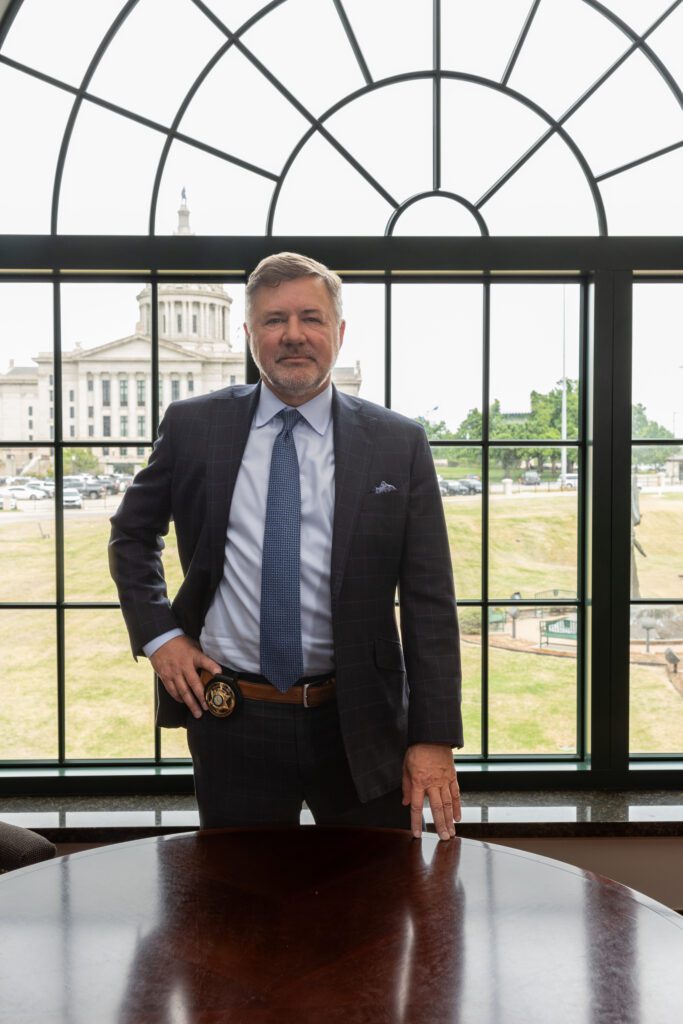
Gentner Drummond
Attorney General, State of Oklahoma
Gentner Drummond’s life path has been informed largely by promises made to his grandfather.
“When I was 14, my maternal grandfather sat me down,” Drummond says. His grandfather wanted him to serve in the military, which was not typical for his Osage County ranching family. He asked the young Gentner to then return to Oklahoma and serve his family, and when his children were grown, to serve the state.
“I am 61, and I have done that,” he says. “I came back after law school and raised six kids. I formed many companies. Now I’m serving as attorney general and aspire to be our governor.”
Drummond is the state’s chief law enforcement officer, overseeing an office with five divisions and more than 300 employees. He relies on both life and career skills to make everything happen.
“My first profession was as a fighter pilot,” he says. “You are trained to consume a lot of information quickly and make definitive decisions.”
Every Friday at noon, Drummond receives reports from his division leaders that average about 140 pages each. He consumes that information over the weekend.
“It’s with that constant intensity and constant pressure that we move the ball forward,” he says. And, Drummond mentions, he’s “not willing to put off until next week what we can do this week.”
The criminal division goes after the thousands of organized crime units operating in Oklahoma, with a focus on illegal drug production and distribution. The multi-county grand jury division investigates public corruption, primarily elected officials abusing positions of power.
On the civil side, his office represents the state in such matters as pharmacy benefit management and consumer projection. The attorney general also “pushes back on federal overreach and litigates to the Supreme Court,” he says, and serves as general counsel to state agencies.
When it comes to relations with Native American tribes, Drummond disagrees with Gov. Kevin Stitt on matters such as gaming compacts.
“We have economically and culturally rich tribes that are distinct and unique,” Drummond says. “We need a positive working relationship. We have tribal law enforcement partners we can work with to enhance public safety.”
Drummond has also emphasized openness and transparency in state government.
“Sunshine provides disinfectant to bad actions,” he says.
Drummond’s public access counselor works with local governments and state agencies to ensure adherence to open records and open meetings laws. His office partners with the Oklahoma Press Association to present open meetings seminars, which, last year, were attended by 750 people.
Drummond says his family has been richly blessed since arriving from Scotland in 1890.
“I want to give back to the state of Oklahoma,” he says. “I want to ensure we have an Oklahoma that will be attractive to my children and grandchildren and great grandchildren, for them to stay here.”
– KB
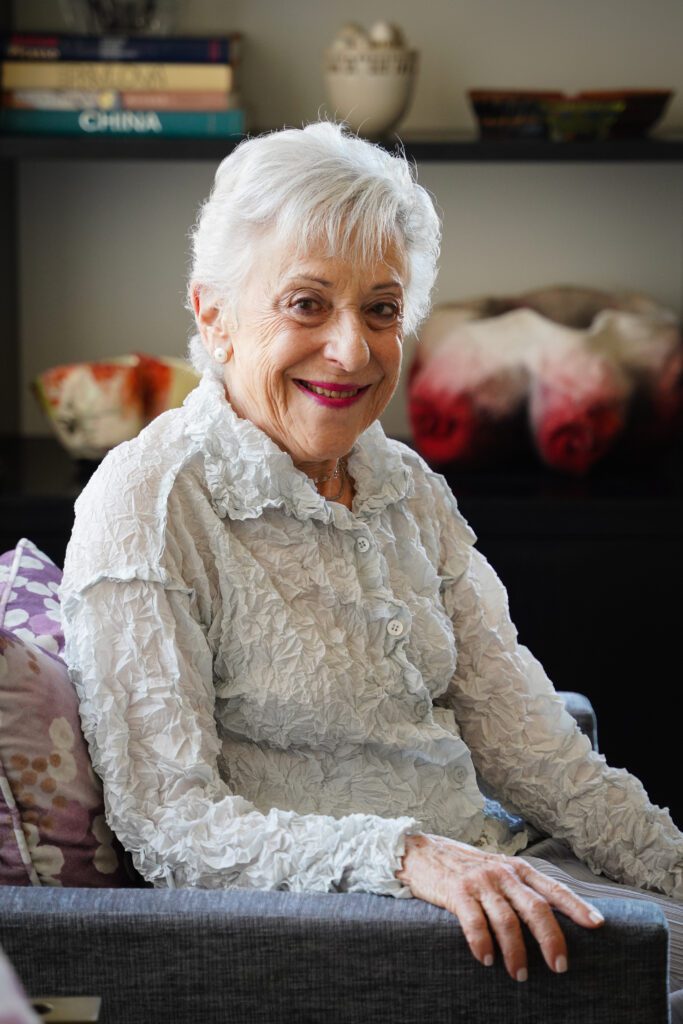
Lynn Schusterman
Founder and Chair Emerita, Charles and Lynn Schusterman Family Philanthropies
Shaping a world in which all people are treated with dignity and respect is at the core of Lynn Schusterman’s philosophy – whether in the areas of criminal justice reform and voting rights or reproductive equity and funding for the Jewish community.
“In the Jewish tradition, it’s this teaching that inspired [her husband] Charles [Schusterman] and me to start our foundation and what continues to drive our philanthropy’s work to build more just and inclusive societies in the U.S. and Israel,” Schusterman says.
The foundation prioritizes working in collaboration with grantees, partnering with fellow funders and making long-term investments because lasting change, Schusterman says, takes a willingness to stay the course.
“Whenever I feel impatient, I try to think of the Talmudic story of Honi the Circlemaker,” she says. “When asked why he was planting carob trees that would not bloom in his lifetime, he said: ‘Just as my parents planted for me, so I will plant for my children.’”
The foundation helped launch Repair the World, an organization that facilitates young Jewish people to volunteer in the community while learning about their commitment to service.
“We have worked on expanding women’s leadership, both in elected positions and in the workplace, as well as expanding all workers’ access to a family sustaining wage,” Schusterman says. “We also know that education has an essential role to play in ushering in a brighter future.”
In Tulsa, the foundation partnered with Legal Aid Services of Oklahoma to pilot a program providing high-quality legal representation to parents and children in the child welfare system.
Schusterman’s passion for advocacy and activism, she says, is deeply rooted in her family’s values and commitment to Jewish ethics.
“I remember holding my father’s hand as a little girl as we visited elderly people in need,” she says. “These moments left an indelible impression on me and helped me form a personal and lifelong commitment to giving back. I also believe deeply in the power, passion and potential of the next generation and have devoted a lot of time to investing in rising leaders who can help shape the future they and their families deserve.”
Tulsa holds a special place in Schusterman’s heart and in her philanthropy.
“I am confident that it can be a place where everyone has access to the resources and opportunities they need to thrive,” she says. “To get there will require a wide array of leaders working together to transform the systems that shape the quality of life in our state.”
– GE
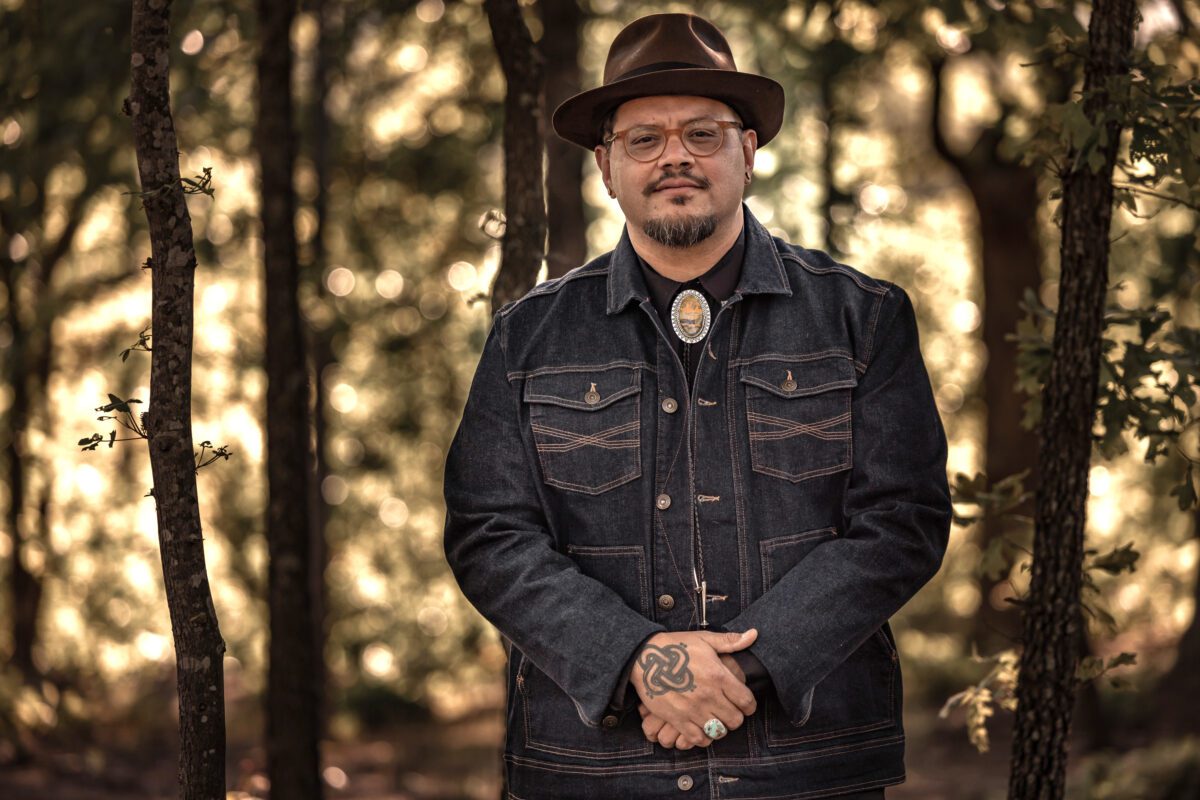
Sterlin Harjo
Filmmaker
As an award-winning filmmaker and creator with Oklahoma consistently at the center of his storytelling, Sterlin Harjo is breaking stereotypes and educating the masses.
“I definitely have had a sort of romantic vision of what it is to grow up in rural Oklahoma,” Harjo says. “It was a very magical upbringing. I was raised by great storytellers, and they created sort of myths and mythology around our experience here, and I just wanted to keep that going.”
It’s a passion that earned him a spot on the 2025 National Geographic 33, a hand-selected group of change agents using their talent and energy to impact science, policy, conservation and storytelling. In his most lauded work to date, the 2021 FX show Reservation Dogs, Harjo offers audiences an authentic portrayal of Native American life and issues – and he also considered the project an opportunity to showcase what Native filmmakers can do.
“Some episodes were sort of transitioned into different genres, and we were playing with storytelling, doing different types of storytelling,” he says. “That was the idea. I think the Native people have been boxed up in film and storytelling and media and popular culture, and I was just trying to break those constraints a little bit.”
Right now, Harjo’s got plenty of irons in the fire: He’s working on a documentary about Oklahoma guitar player Jesse Ed Davis, he’s got other feature films in the works and is writing a script about Olympic gold medalist Jim Thorpe, who also played professional football, baseball and basketball. He’s also helming The Lowdown, a TV show starring Ethan Hawke, mostly filmed in Tulsa, set to air on FX starting in September.
Shining a light on the truth in Native stories is a responsibility Harjo says he takes seriously.
“There are a lot of lies being told, and I want to be a part telling the truth about what it’s like living here for the people who were forced by the U.S. government to be here,” he says. “I’m not trying to make a giant political statement necessarily, but I’m just showing us as regular people, as humans.”
Even with his Hollywood ties, Harjo makes his home in Oklahoma because he “loves the place” and telling its stories, he says.
“And I love the people,” he says. “I think the people here, no matter what your background is, are what make Oklahoma great.”
– GE
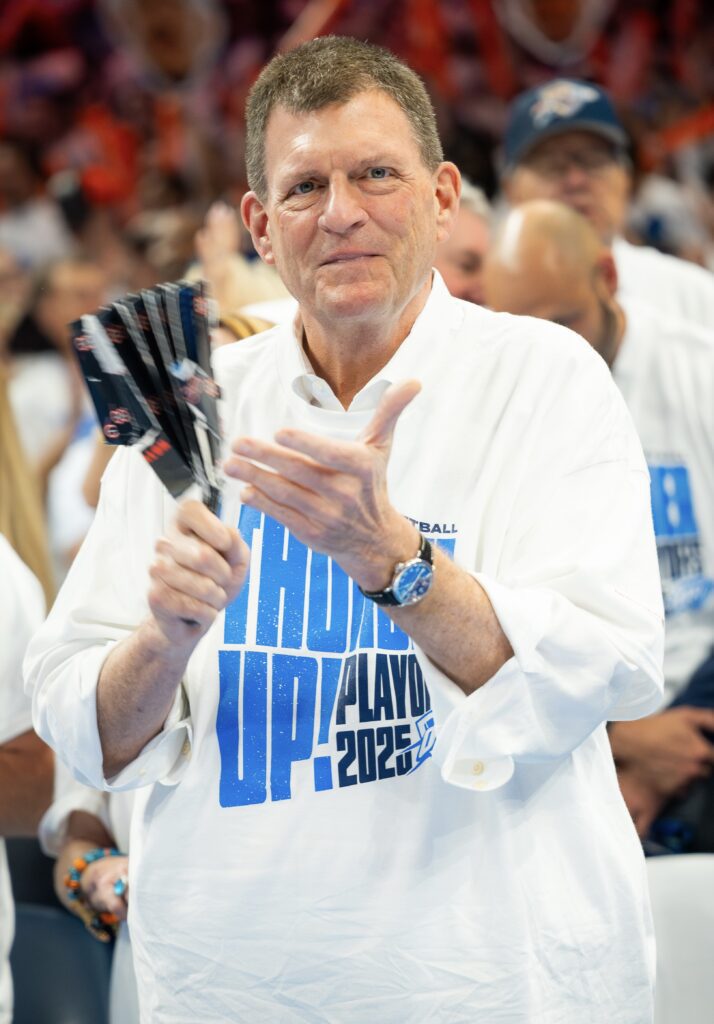
Clayton Bennett
Chairman, Professional Basketball Club LLC and Dorchester Capital Corporation
Clayton Bennett has a lengthy resume of business, civic and philanthropic endeavors, but he’s probably best known as chairman of the ownership group that brought the Oklahoma City Thunder to the state in 2008. The OKC native is also president of Dorchester Capital, a private investment company. In 1997, he was presented the Economic Development Citizen Leadership Award by the National Council of Economic Development.
Bennett has served as chairman of the Greater Oklahoma City Chamber of Commerce, the Oklahoma State Fair, the Oklahoma Hall of Fame and the Oklahoma Health Center Foundation.
He serves as a director of the Oklahoma City Industrial and Cultural Facilities Trust, the National Football Foundation and College Hall of Fame, and the National Cowboy and Western Heritage Museum.
In 2007, Bennett was inducted into the Oklahoma Hall of Fame, and in 2013, he was inducted into the Oklahoma Sports Hall of Fame.
– KB
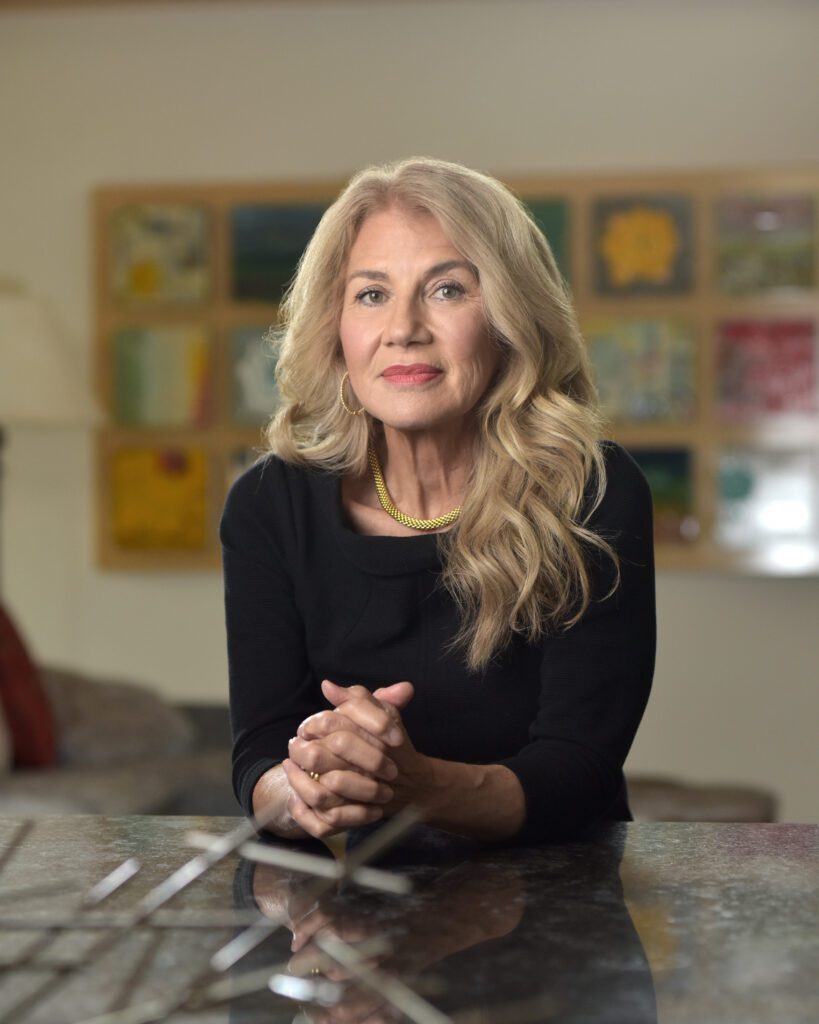
Sue Ann Arnall
Founder/CEO, Arnall Family Foundation
Helping others is “beyond exhilarating,” Sue Ann Arnall told Oklahoma Magazine last year as the nonprofit she founded approached its tenth year in operation.
After a rewarding career as an energy industry attorney, Arnall created the Arnall Family Foundation in 2015, which focuses on criminal justice reform and racial disparities among people of color in Oklahoma jails and prisons. The foundation also works to create systemic change in the areas of youth welfare and justice, homelessness, and historically under-resourced communities.
A Poteau native, Arnall earned a degree in economics and a juris doctor from Tulsa University, the latter of which named her a distinguished alumna in 2024. She is a member of the Oklahoma Hall of Fame and the Oklahoma Women’s Hall of Fame.
The Arnall Family Foundation has invested more than $200 million in initiatives to improve Oklahoma’s foster care system and reduce its incarceration rate.
– KB
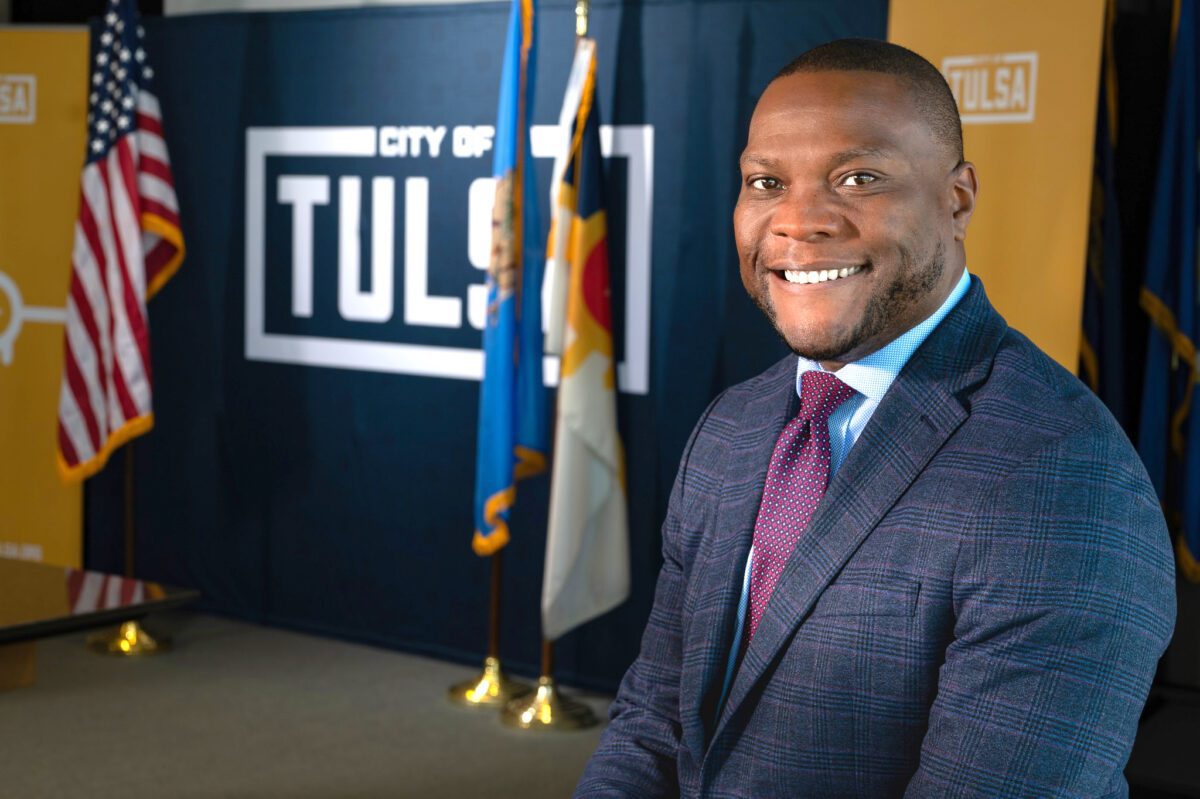
Monroe Nichols
Mayor, City of Tulsa
Monroe Nichols, Tulsa’s first Black mayor, came to office in 2024 with a focus borne from a background in government, higher education and the nonprofit sector.
He served as an aide to former Tulsa mayor Kathy Taylor, chief of staff to former OU-Tulsa President Gerry Clancy, economic development manager at the Oklahoma State Department of Career and Technology Education and director of business retention and expansion programs for the Tulsa Regional Chamber of Commerce.
In 2016, he became the first African-American elected to represent District 72 in the state House of Representatives, where he chaired the Oklahoma Legislative Black Caucus.
As mayor, Nichols’ goals include increasing Tulsa’s affordable housing stock by 6,000 units by 2028, with a plan to reduce the cost burdens faced by developers through the creation of a Housing Acceleration Team.
His objectives also include more funding for homelessness initiatives, making Tulsa a safer city, strengthening tribal partnerships and helping to place more children on a pathway to economic stability.
– KB

Tricia Everest
Secretary of Public Safety, Oklahoma Department of Public Safety
Criminal justice and public safety are key areas of emphasis in the career of Tricia Gaylord Everest, Oklahoma’s Secretary of Public Safety. She oversees more than 55 agencies including the Department of Public Safety, the Oklahoma Department of Corrections, the Oklahoma State Bureau of Investigation, the Pardon and Parole Board, and the Oklahoma Department of Emergency Management and Homeland Security.
An Oklahoma City native and fourth-generation Oklahoman, Everest holds a degree from Vanderbilt University and a juris doctor from the University of Oklahoma School of Law.
Everest was a state assistant attorney general from 2004 to 2010. She is the founding chair of Palomar, Oklahoma City’s Family Justice Center, which removes barriers for abuse victims to access the services they need. She was also the founding chair of ReMerge, which diverts mothers from prison and empowers women to build healthy foundations for themselves and their children.
Everest was inducted into the Oklahoma Hall of Fame in 2019.
– KB






















